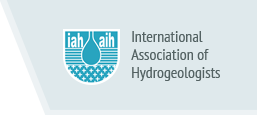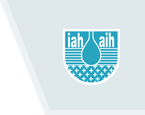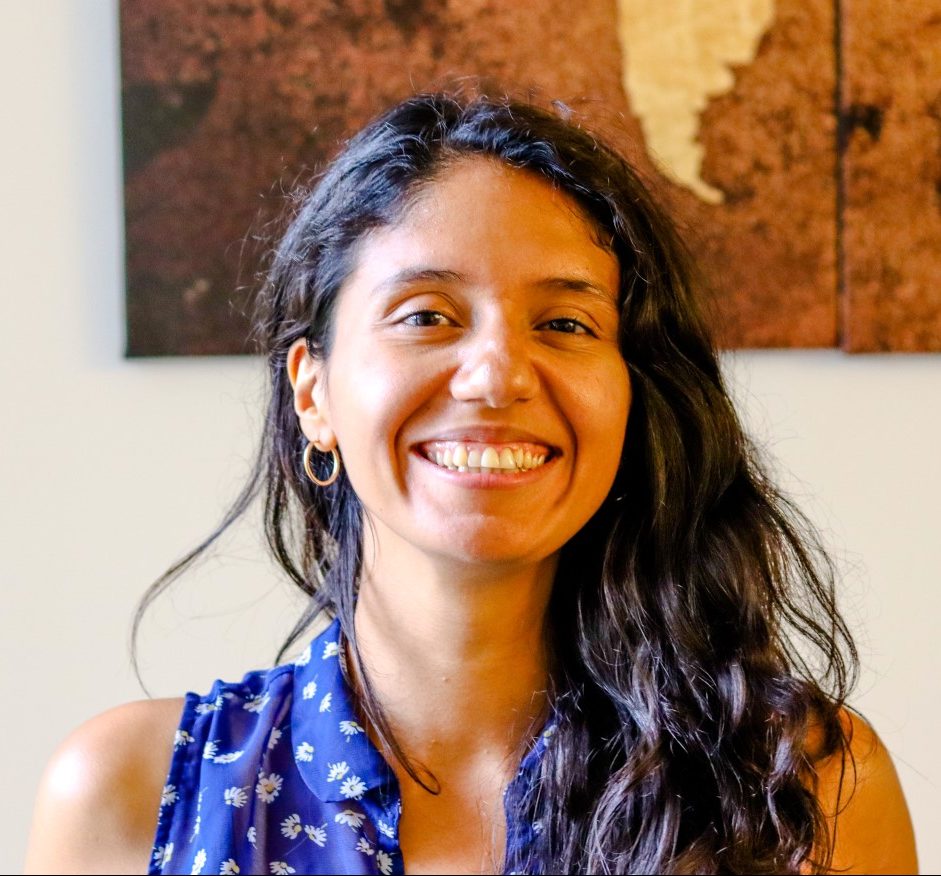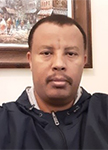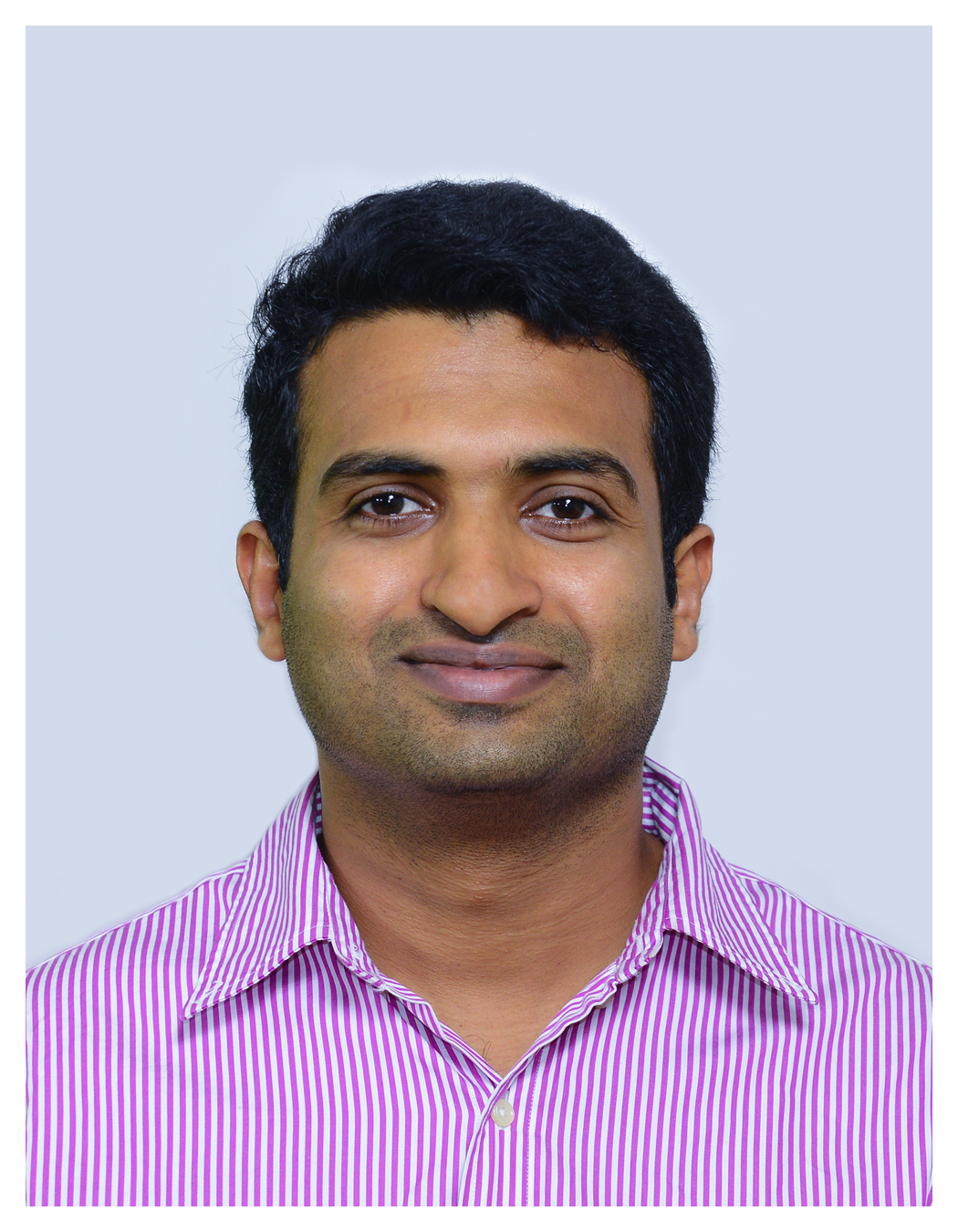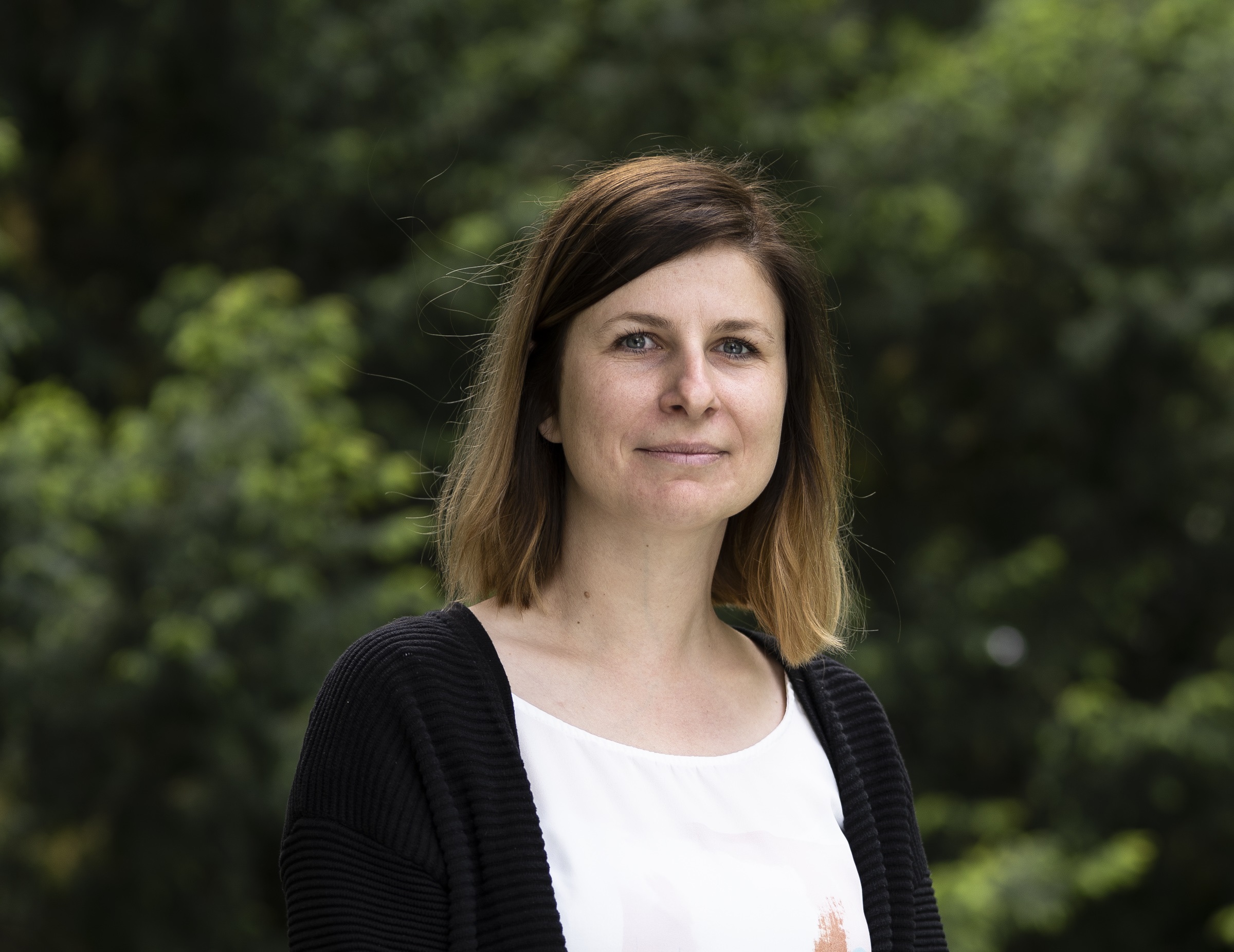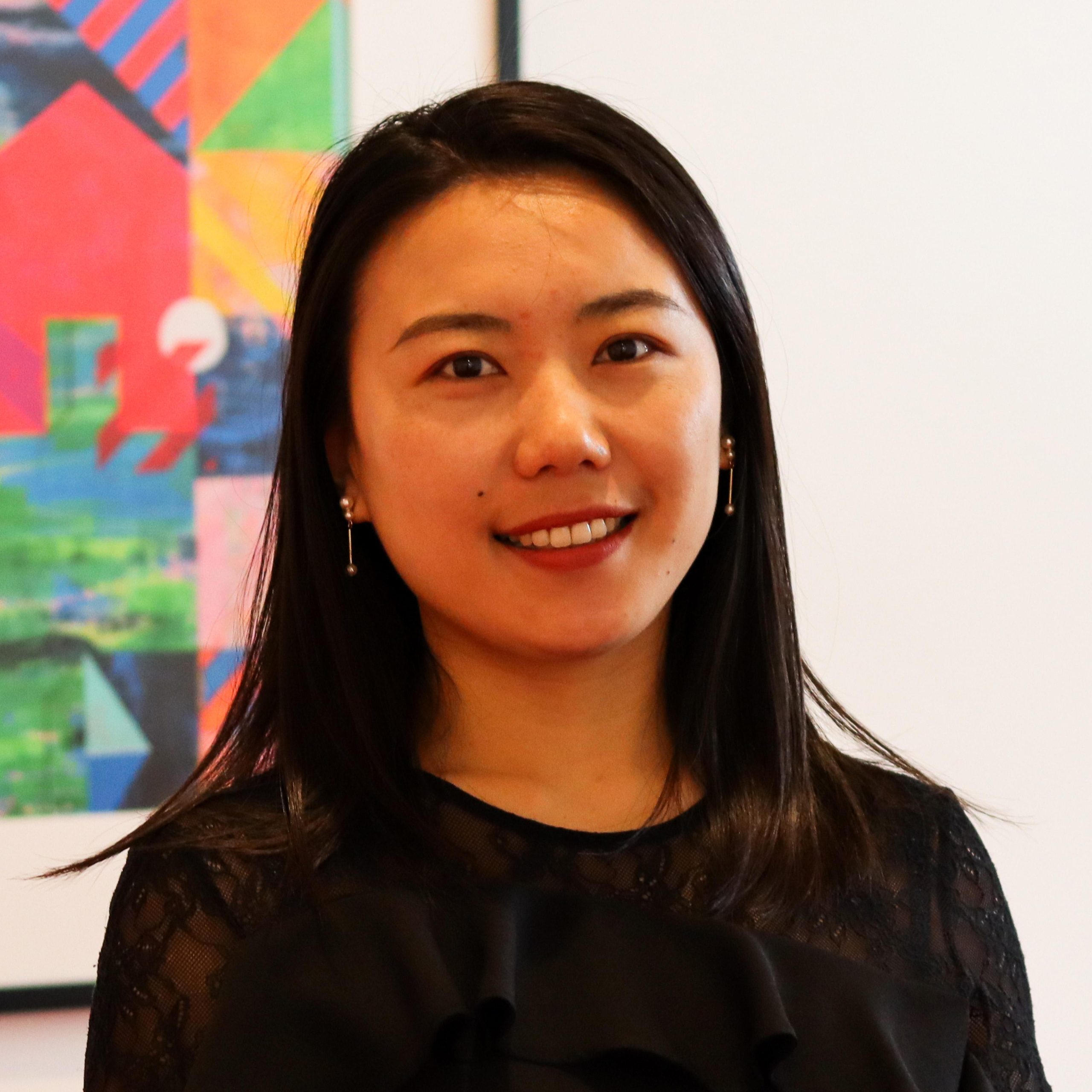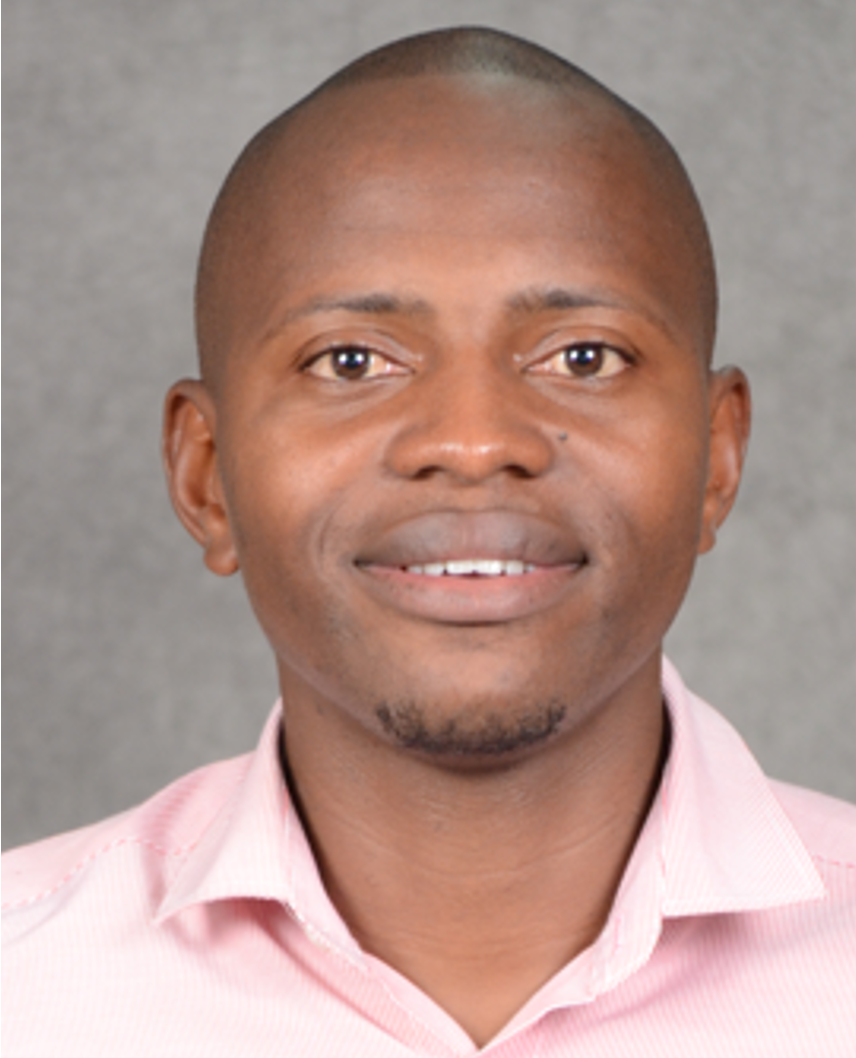Our Committee
Chair
Claudia Ruz Vargas
Claudia is a Senior Groundwater Specialist at the International Groundwater Resources Assessment Centre (IGRAC) in Delft, the Netherlands. With over 8 years of experience, she participated in various international projects and initiatives in collaboration with diverse partners. These include the World Water Quality Alliance (WWQA), the Global Groundwater Monitoring Network (GGMN), the World Water Development Report (WWDR) 2022, and many others. These projects align perfectly with her main interest, which is to assess the global status and trends of groundwater in terms of quantity and quality and promote the protection of this vital resource. Her academic background includes a civil engineering degree from the University of Santiago, Chile, and a joint Erasmus Mundus M.Sc. degree on groundwater and global change (GroundwatCH).
Co-Chairs
Dan J. Lapworth, PhD
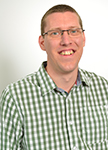 Dr. Lapworth is a Principal hydrogeochemist and has worked at the British Geological Survey (BGS) since 2001. Dan received his PhD in hydrogeology at University College London. His research focus is groundwater quality, groundwater protection and replenishment within the context of environmental change and anthropogenic pressures. His interest lies in applied groundwater science to inform groundwater development policy and improved protection of drinking water resources. Much of his research is undertaken in Africa and South Asia as well as Europe. Dan leads BGS research on emerging organic contaminants in groundwater as well as the application of fluorescence techniques to assess microbiological contamination in groundwater sources.
Dr. Lapworth is a Principal hydrogeochemist and has worked at the British Geological Survey (BGS) since 2001. Dan received his PhD in hydrogeology at University College London. His research focus is groundwater quality, groundwater protection and replenishment within the context of environmental change and anthropogenic pressures. His interest lies in applied groundwater science to inform groundwater development policy and improved protection of drinking water resources. Much of his research is undertaken in Africa and South Asia as well as Europe. Dan leads BGS research on emerging organic contaminants in groundwater as well as the application of fluorescence techniques to assess microbiological contamination in groundwater sources.
Thomas B. Boving, PhD
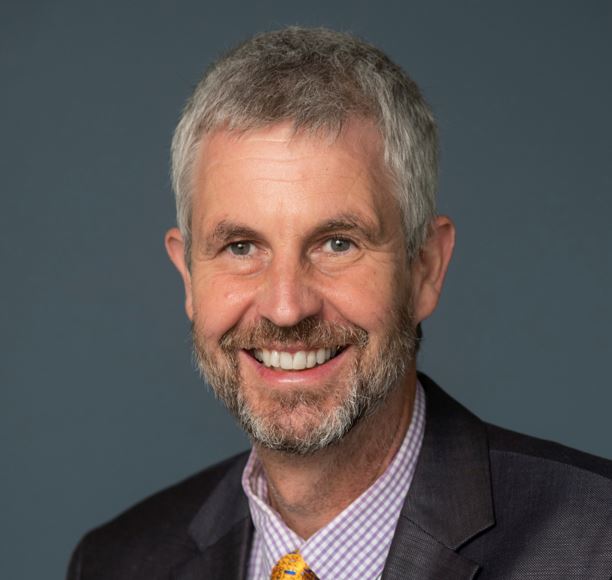 Dr. Boving is a Professor of Environmental Hydrogeology at the University of Rhode Island (URI) Kingston, USA. He is appointed to the Department of Civil and Environmental Engineering and the Department of Geosciences. He received his PhD in Hydrology and Water Resources Management from the University of Arizona, Tucson USA. His Diploma in Geology is from the University of Tübingen, Germany. His areas of research include innovative water treatment technologies, riverbank filtration, and stormwater control. Professor Boving has conducted research in Asia, Arabia, Africa, and Europe and currently works with universities and non-governmental organizations in Nepal, Indonesia and India on water treatment and urban flooding projects.
Dr. Boving is a Professor of Environmental Hydrogeology at the University of Rhode Island (URI) Kingston, USA. He is appointed to the Department of Civil and Environmental Engineering and the Department of Geosciences. He received his PhD in Hydrology and Water Resources Management from the University of Arizona, Tucson USA. His Diploma in Geology is from the University of Tübingen, Germany. His areas of research include innovative water treatment technologies, riverbank filtration, and stormwater control. Professor Boving has conducted research in Asia, Arabia, Africa, and Europe and currently works with universities and non-governmental organizations in Nepal, Indonesia and India on water treatment and urban flooding projects.
Pauline L. Smedley, PhD
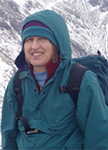 Dr. Pauline Smedley is a geochemist at the British Geological Survey specialising in hydrogeochemical processes in groundwater and aquifers. Particular areas of interest include source, mobilisation and transport of trace elements of health concern in groundwater (e.g. arsenic, fluoride, molybdenum, uranium, radon), characterisation of groundwater baseline chemistry, water-quality mapping, monitoring of inorganic and organic compounds and dissolved gases, and investigations of palaeowater. Applications include assessments of drinking-water quality and health, water resources and pollution, hydrogeochemistry of deep aquifers.
Dr. Pauline Smedley is a geochemist at the British Geological Survey specialising in hydrogeochemical processes in groundwater and aquifers. Particular areas of interest include source, mobilisation and transport of trace elements of health concern in groundwater (e.g. arsenic, fluoride, molybdenum, uranium, radon), characterisation of groundwater baseline chemistry, water-quality mapping, monitoring of inorganic and organic compounds and dissolved gases, and investigations of palaeowater. Applications include assessments of drinking-water quality and health, water resources and pollution, hydrogeochemistry of deep aquifers.
Lydia Olaka, PhD
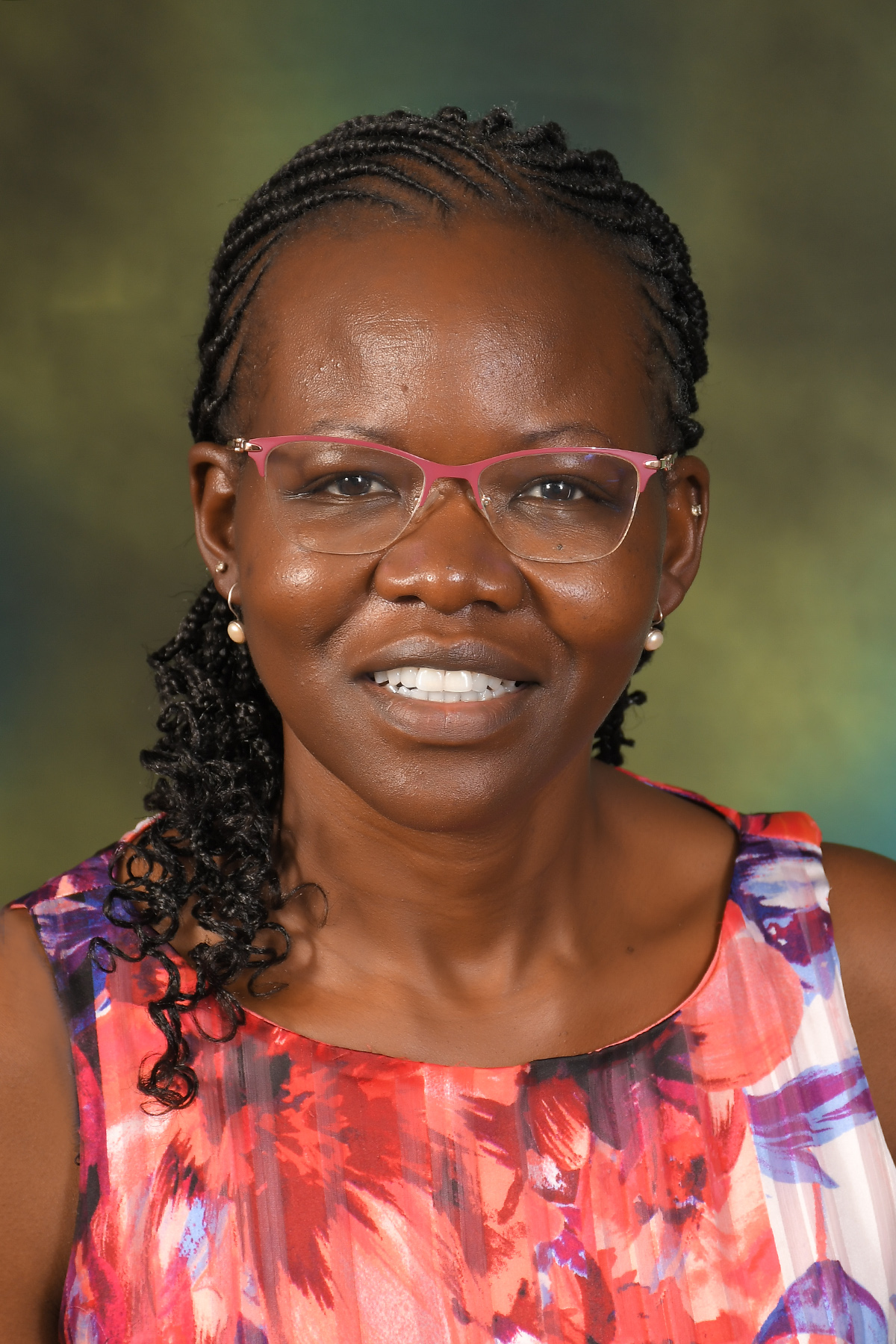
Dr. Lydia Olaka is a Senior Lecturer at the Technical University of Kenya. Formerly she was based at the University of Nairobi. Her particular areas of interest include tracer hydrology, hydrogeochemistry, mapping groundwater and surface water interactions, groundwater in high temperature systems, age dating, geogenic pollution and health. Applications include assessment of water resources in mining areas, groundwater in fractured volcanic rocks and water rock interaction for carbon sequestration in mafic rocks.
Former Chairs
Seifu Kebede, Ph.D.
Dr. Seifu Kebede is a Professor of Hydrogeology at Addis Ababa University, where he has been teaching since 2007. He earned his PhD in Isotope Hydrogeology from the University of Avignon, France, in 2005. Dr. Kebede has published over 70 peer-reviewed articles on a wide range of hydrogeology and hydrology topics, and is the author of a Springer Nature book on groundwater in Ethiopia. He has collaborated with international organizations such as AMCOW, IAEA, UNESCO, UNICEF, and the Nile Basin Initiative (NBI), as well as various NGOs and private sector entities across Africa. Dr. Kebede also serves as the regional contact person for the USGS groundwater mapping project in Ethiopia.
Members
Michaela Cashman, PhD
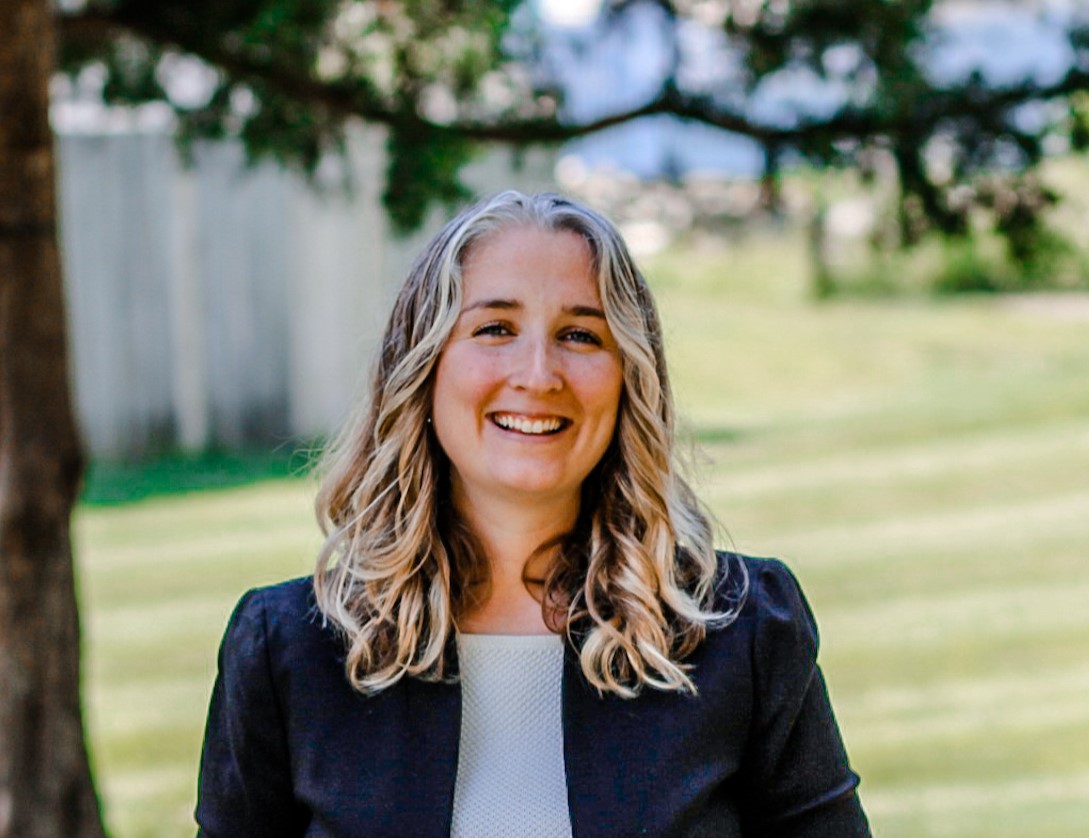 Dr. Michaela Cashman is a Biologist with the United States Environmental Protection Agency’s Atlantic Coastal Environmental Sciences Division in Narragansett, Rhode Island, USA. She holds a PhD in Biological and Environmental Sciences with a focus in Hydrogeology from the University of Rhode Island. Some of her past research focused on benthic toxicity of emerging contaminants, assessing advanced oxidation processes for 1,4-Dioxane contaminated groundwater, and developing methods to extract and identify microplastics from sediments. Michaela’s current research uses multiple approaches to assess Per- and polyfluoroalkyl substances (PFAS) in sediments. Her research integrates the use of multiple analytical techniques to characterize a wide array of legacy and novel PFAS in the environment. She is interested in the partitioning of contaminants across hydrogeologic systems.
Dr. Michaela Cashman is a Biologist with the United States Environmental Protection Agency’s Atlantic Coastal Environmental Sciences Division in Narragansett, Rhode Island, USA. She holds a PhD in Biological and Environmental Sciences with a focus in Hydrogeology from the University of Rhode Island. Some of her past research focused on benthic toxicity of emerging contaminants, assessing advanced oxidation processes for 1,4-Dioxane contaminated groundwater, and developing methods to extract and identify microplastics from sediments. Michaela’s current research uses multiple approaches to assess Per- and polyfluoroalkyl substances (PFAS) in sediments. Her research integrates the use of multiple analytical techniques to characterize a wide array of legacy and novel PFAS in the environment. She is interested in the partitioning of contaminants across hydrogeologic systems.
Melissa Lenczewski, PhD
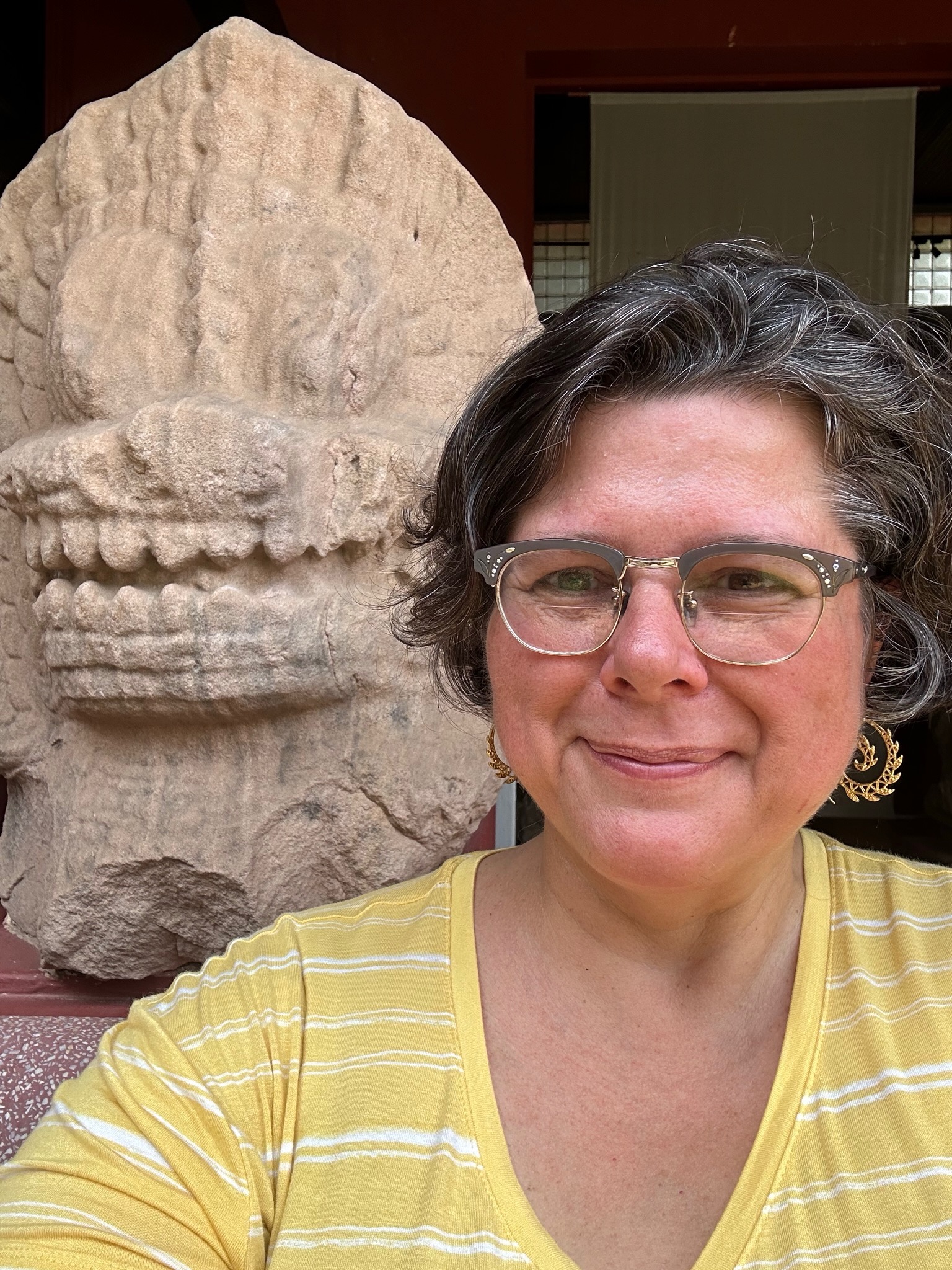 Dr. Melissa Lenczewski is a Professor at Northern Illinois University in the Department of Earth, Atmosphere, and Environment. She served as the director of the Institute for the Study of the Environment, Sustainability, and Energy for 12 years. Her main area of research is on emerging contaminant fate and transport. She has projects in Cancun, Mexico where she works with Centro de Investigación Científica de Yucatán on the impact of tourism in a karstic aquifer system. Currently, she is an ASEAN Fulbright Research Scholar working in Cambodia and Thailand on issues related to rapid urbanization on groundwater quality. She is passionate about increasing diversity in the hydrosciences.
Dr. Melissa Lenczewski is a Professor at Northern Illinois University in the Department of Earth, Atmosphere, and Environment. She served as the director of the Institute for the Study of the Environment, Sustainability, and Energy for 12 years. Her main area of research is on emerging contaminant fate and transport. She has projects in Cancun, Mexico where she works with Centro de Investigación Científica de Yucatán on the impact of tourism in a karstic aquifer system. Currently, she is an ASEAN Fulbright Research Scholar working in Cambodia and Thailand on issues related to rapid urbanization on groundwater quality. She is passionate about increasing diversity in the hydrosciences.
Jean O’Dwyer, PhD
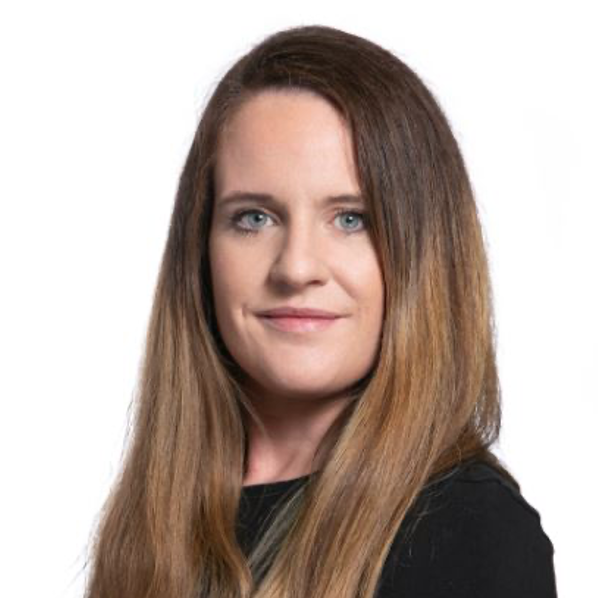 Dr. Jean O’Dwyer is Deputy Head of Environmental Science in the School of Biological, Earth and Environmental Science at University College Cork and Deputy Director of the Science Foundation Ireland Centre for Research in Applied Geoscience (iCRAG). Jean has a Bachelor of Science in Environmental Science (2011) and a Ph.D. in Environmental Health Science (2015) from the University of Limerick. Her research interests focus on the interaction between the natural environment and human health, with a particular emphasis on groundwater contamination, waterborne infectious disease, and the impact of climate change on human health and well-being. Jean is a Principal Investigator in the Environmental Research Institute where she leads the Environment and Health Research Lab.
Dr. Jean O’Dwyer is Deputy Head of Environmental Science in the School of Biological, Earth and Environmental Science at University College Cork and Deputy Director of the Science Foundation Ireland Centre for Research in Applied Geoscience (iCRAG). Jean has a Bachelor of Science in Environmental Science (2011) and a Ph.D. in Environmental Health Science (2015) from the University of Limerick. Her research interests focus on the interaction between the natural environment and human health, with a particular emphasis on groundwater contamination, waterborne infectious disease, and the impact of climate change on human health and well-being. Jean is a Principal Investigator in the Environmental Research Institute where she leads the Environment and Health Research Lab.
Bertil Nlend, PhD
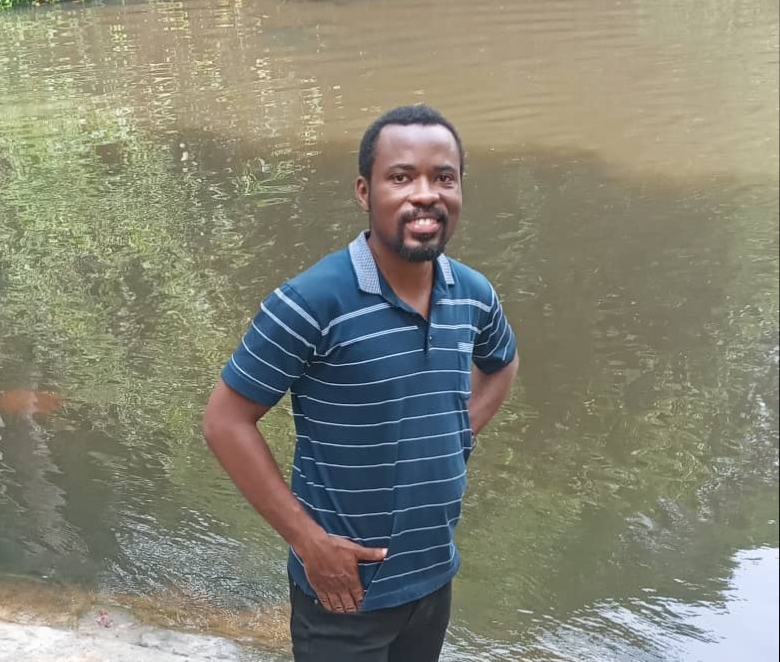 Dr. Bertil Nlend is a lecturer-researcher at the Department of Earth Sciences of the University of Douala, Cameroon. He defended his PhD in 2019 at the University of Franche-Comté (France) and is the author of more than 10 papers. Recently, he performed a post-doctoral internship on precipitation isotopes and groundwater recharge mechanisms at the University of Corsica under the supervision of Pr. Frederic Huneau. The main publications of Dr. Nlend focus on (i) the use of isotopes and chemistry to understand aquifer functioning, (ii) the use of isotopes to understand climate dynamics, and (iii) the impact of urbanization on aquifers and water management strategies.
Dr. Bertil Nlend is a lecturer-researcher at the Department of Earth Sciences of the University of Douala, Cameroon. He defended his PhD in 2019 at the University of Franche-Comté (France) and is the author of more than 10 papers. Recently, he performed a post-doctoral internship on precipitation isotopes and groundwater recharge mechanisms at the University of Corsica under the supervision of Pr. Frederic Huneau. The main publications of Dr. Nlend focus on (i) the use of isotopes and chemistry to understand aquifer functioning, (ii) the use of isotopes to understand climate dynamics, and (iii) the impact of urbanization on aquifers and water management strategies.
Gualbert Oude Essink, PhD
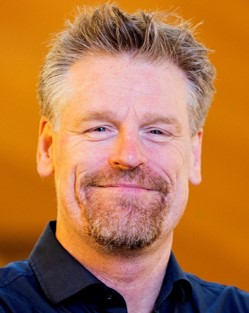 Dr. Gualbert Oude Essink is a hydrogeologist with extensive experience in developing sustainable solutions to improve freshwater availability in coastal zones, working in the Netherlands, Belgium, Egypt, Singapore, Bangladesh, and Vietnam. He works at Deltares and is an associate professor at Utrecht University. His research focuses on fresh-saline groundwater in subsiding coastal areas under paleo, anthropogenic, climate change, and storm-surge conditions. Gu is involved in various activities such as airborne surveys for rapid groundwater salinity mapping, aquifer storage and recovery, smart monitoring, and numerical modeling of groundwater resources. He also contributes to teaching and supervising MSc students and Ph.D. candidates.
Dr. Gualbert Oude Essink is a hydrogeologist with extensive experience in developing sustainable solutions to improve freshwater availability in coastal zones, working in the Netherlands, Belgium, Egypt, Singapore, Bangladesh, and Vietnam. He works at Deltares and is an associate professor at Utrecht University. His research focuses on fresh-saline groundwater in subsiding coastal areas under paleo, anthropogenic, climate change, and storm-surge conditions. Gu is involved in various activities such as airborne surveys for rapid groundwater salinity mapping, aquifer storage and recovery, smart monitoring, and numerical modeling of groundwater resources. He also contributes to teaching and supervising MSc students and Ph.D. candidates.
Bhanu Prakash V, PhD
Dr. Bhanu Prakash V is an associate professor in the Environmental Engineering Group at the Civil Engineering Department at the Indian Institute of Technology, Roorkee. He received his M.Eng. and PhD in Environmental Engineering from Texas A&M University, College Station, USA. He has worked on developing a new class of treatment processes called Advanced Reduction Processes for the reductive degradation of oxidised contaminants. He currently focuses on the fate of contaminants of emerging concern (CECs) in the subsurface and sewage treatment plants including biosolids and advanced techniques for CEC degradation. He is involved with the Central Pollution Control Board of India in setting up guidelines for a shortlist of CECs in Indian surface waters.
Anne Togola, PhD
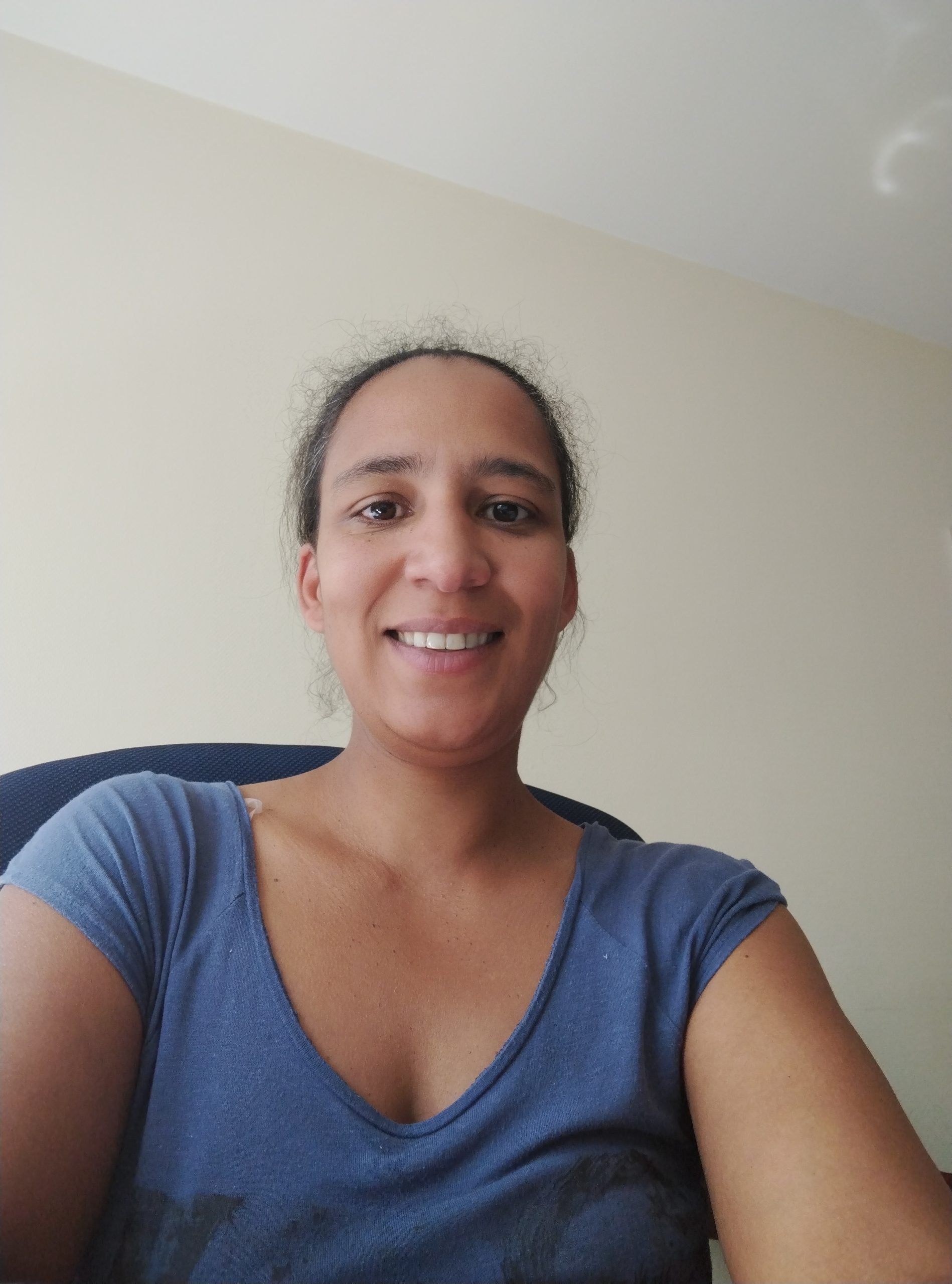 Dr. Anne Togola is an analytical chemist for the French Geological Survey – BRGM- Orléans, France. She holds a Ph.D. in Chemistry and Environmental Sciences with a focus on Analytical Chemistry from the University of Bordeaux. She is an expert on environmental monitoring dedicated to characterizing the fate and transport of emerging contaminants in the soil-unsaturated water-groundwater continuum. Her research focused on the implementation of innovative monitoring strategies (passive sampling, non-target screening approaches) for groundwater monitoring with a focus on specific emerging contaminants (PPCPs, phyto-pharmaceutical, and their by-products). Currently, Anne uses multiple analytical approaches to assess Per- and poly-fluoroalkyl substances (legacy and novel PFAS) in waters and sludge, as well as the very polar/very persistent (vPvM) compounds. This advanced analysis aims to determine the sources and fate of these contaminants of concern in the hydrosystems.
Dr. Anne Togola is an analytical chemist for the French Geological Survey – BRGM- Orléans, France. She holds a Ph.D. in Chemistry and Environmental Sciences with a focus on Analytical Chemistry from the University of Bordeaux. She is an expert on environmental monitoring dedicated to characterizing the fate and transport of emerging contaminants in the soil-unsaturated water-groundwater continuum. Her research focused on the implementation of innovative monitoring strategies (passive sampling, non-target screening approaches) for groundwater monitoring with a focus on specific emerging contaminants (PPCPs, phyto-pharmaceutical, and their by-products). Currently, Anne uses multiple analytical approaches to assess Per- and poly-fluoroalkyl substances (legacy and novel PFAS) in waters and sludge, as well as the very polar/very persistent (vPvM) compounds. This advanced analysis aims to determine the sources and fate of these contaminants of concern in the hydrosystems.
Anja Koroša, PhD
Dr. Anja Koroša obtained her Ph.D. in 2019 and is a hydrogeologist on the Geological Survey of Slovenia experienced with hydro geochemistry, hydrogeology, emerging contaminants, water quality studies: design and implementation, visualization and data analysis, groundwater protection, study of unsaturated zone characteristics, use of natural and artificial isotopes in hydrogeology.
In recent years she has focused on research into groundwater quality, emerging and micro-organic pollutants in groundwater, and the development of innovative methods for the determination of emerging organic compounds in groundwater (passive sampling). She paid special attention to the study of water and organic pollutants transport processes in the unsaturated zone of the gravel aquifer with an emphasis on the implementation of experimental work in the lysimeter. During her postdoctoral research (2020 – 2022), she expanded her extensive knowledge in the field of various groundwater sampling techniques, their development, and groundwater modeling of the unsaturated and saturated zones. In 2022 she was in Belgium on a scientific visit in the scope of the IAEA fellowship, where she was involved in a research group at the University of Ghent, Laboratory for Applied Geology and Hydrogeology, with experts in MODFLOW modeling.
Feifei Cao, PhD
Dr. Feifei Cao is a Groundwater Specialist at the International Groundwater Resources Assessment Centre (IGRAC) in Delft, the Netherlands. She specializes in hydrogeology, environmental geochemistry, and contaminant transport in groundwater. Holding a Ph.D. in Hydrogeology from the University of Reims Champagne-Ardennes in France and having completed her postdoctoral research at Stockholm University in Sweden, her research has been primarily centered on intricate issues of groundwater pollution and contaminant transport (e.g., arsenic, nitrate, perchlorate), as well as the impact of climate change on groundwater dynamics. Currently, she actively participates in various groundwater-related international projects at IGRAC. She is passionate about collaborating with fellow researchers and experts to make a positive impact on sustainable groundwater management.
Moses Souta
Moses Souta is an early career researcher currently enrolled in a PhD fellowship programme with the University of Zimbabwe and the Helmholtz Centre for Environmental Research – UFZ, Germany. This PhD fellowship is supported by the International Atomic Energy Agency (IAEA) as part of a regional programme on enhancing, planning, management and sustainable utilization of Water Resources in Africa. His current work involves using multi-isotopic approaches and the distribution of emerging organic compounds to assess and model groundwater vulnerability to pollution in a carbonate aquifer, with the objective of developing sustainable groundwater management strategies in Zimbabwe. Moses has interests in groundwater quality monitoring and modeling, contaminant fate and transport, and groundwater protection.
Jeeban Panthi, PhD
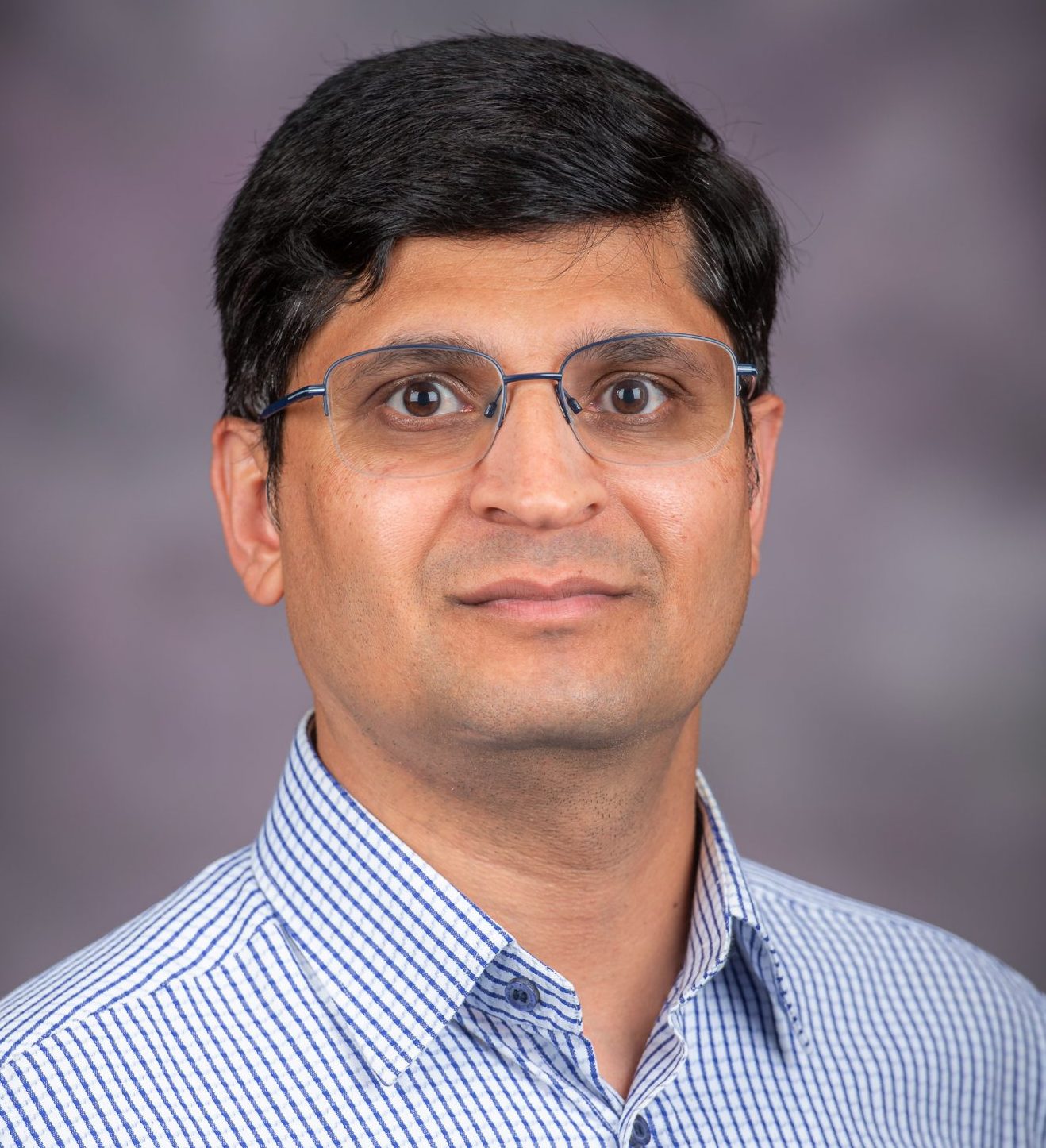
Dr. Jeeban Panthi is a postdoctoral fellow at Kansas State University. His research focuses on enhancing our understanding of coastal processes, particularly at the continental margin where land meets the ocean. By utilizing numerical modeling, geophysical techniques, and field observations, Dr. Panthi investigates the interaction between saline seawater and fresh groundwater, examining its response to environmental changes such as sea level rise, storm surge overwash, and drought. Additionally, he aims to expand his research to explore the impact of groundwater flux on the biogeochemical cycle in coastal wetlands. Before pursuing his Ph.D., Dr. Panthi conducted research on mountain climate and hydrology in the Himalayan region. Dr. Panthi serves as the media contact/communication coordinator for this commission.


